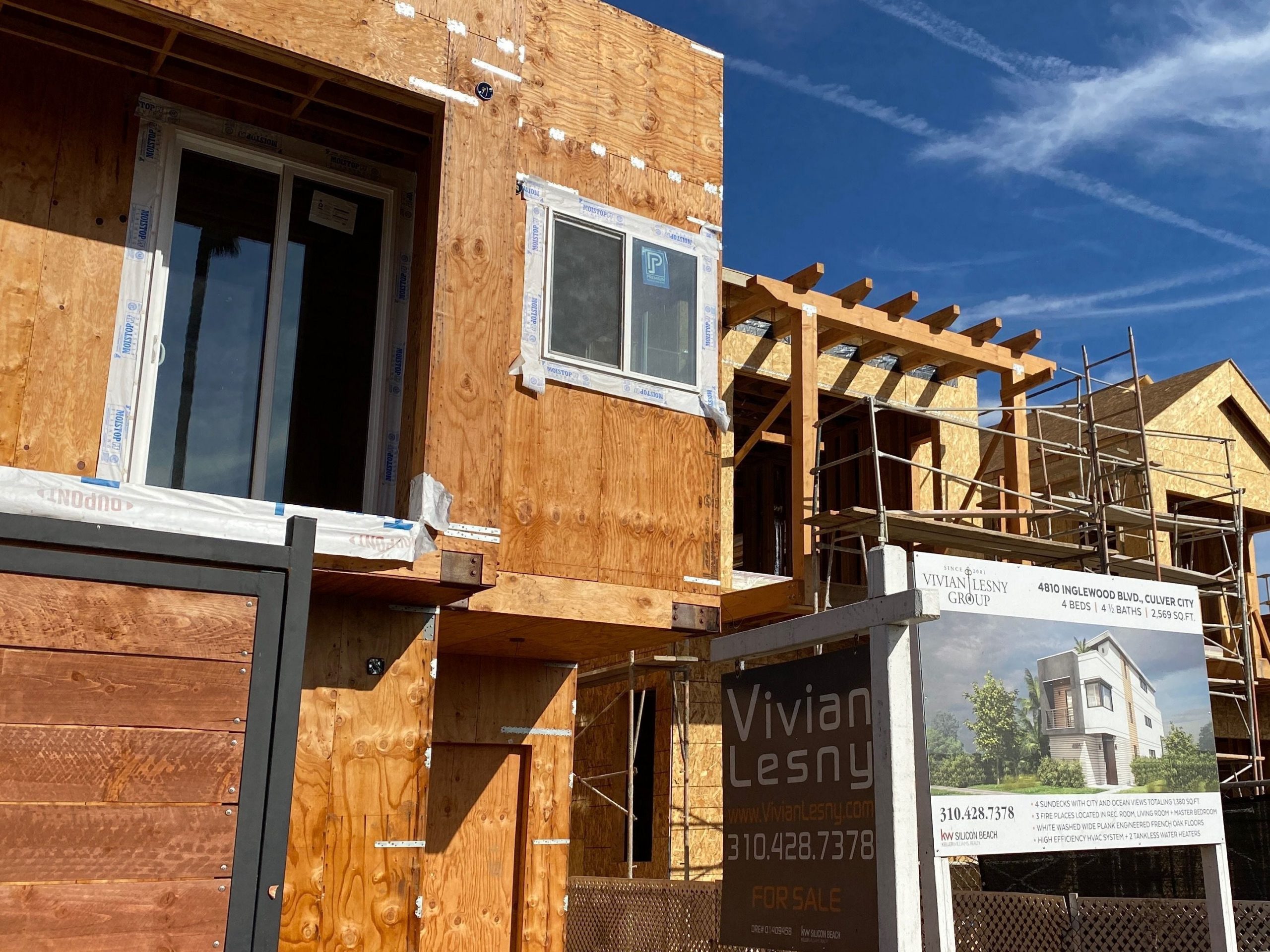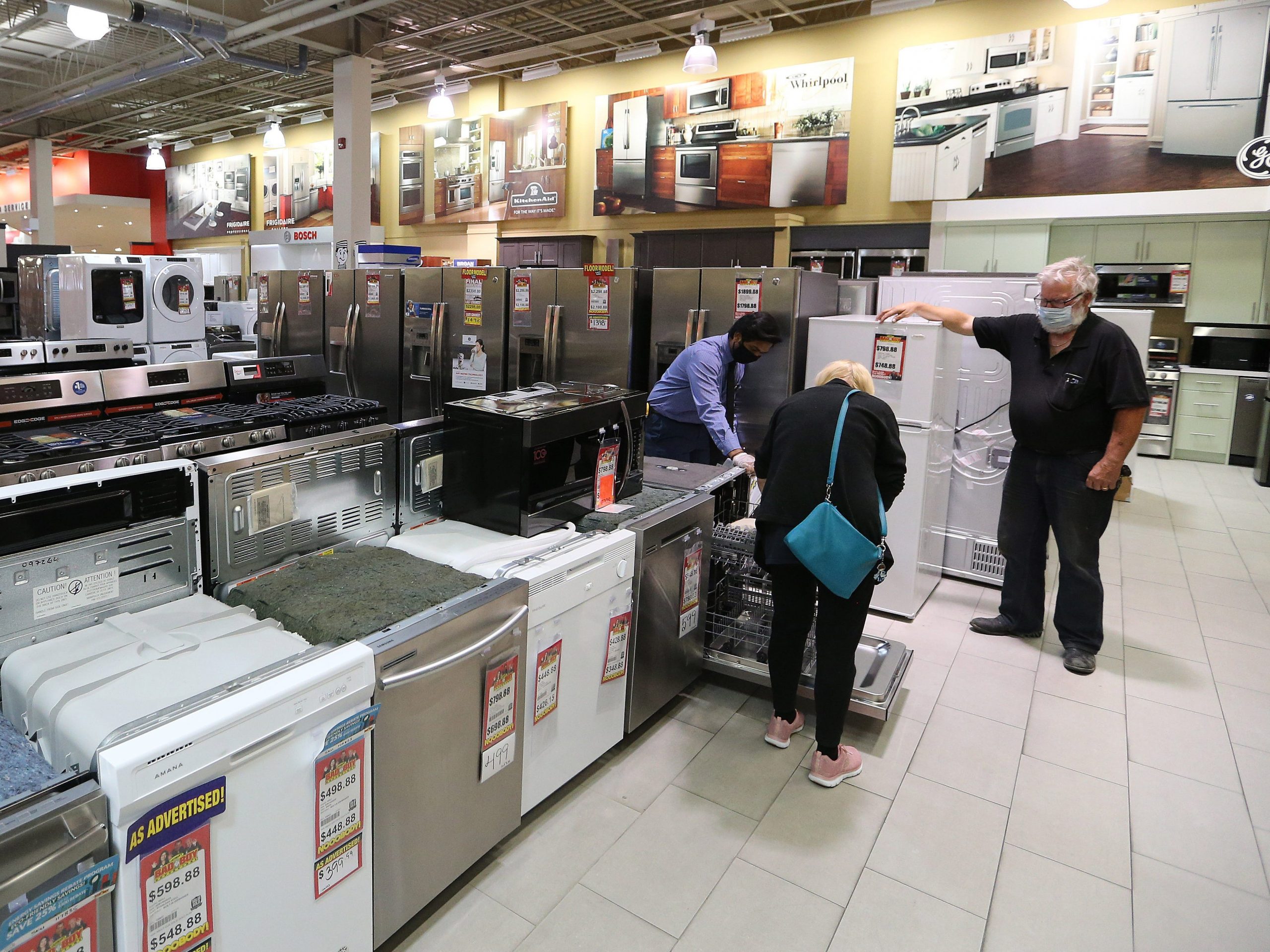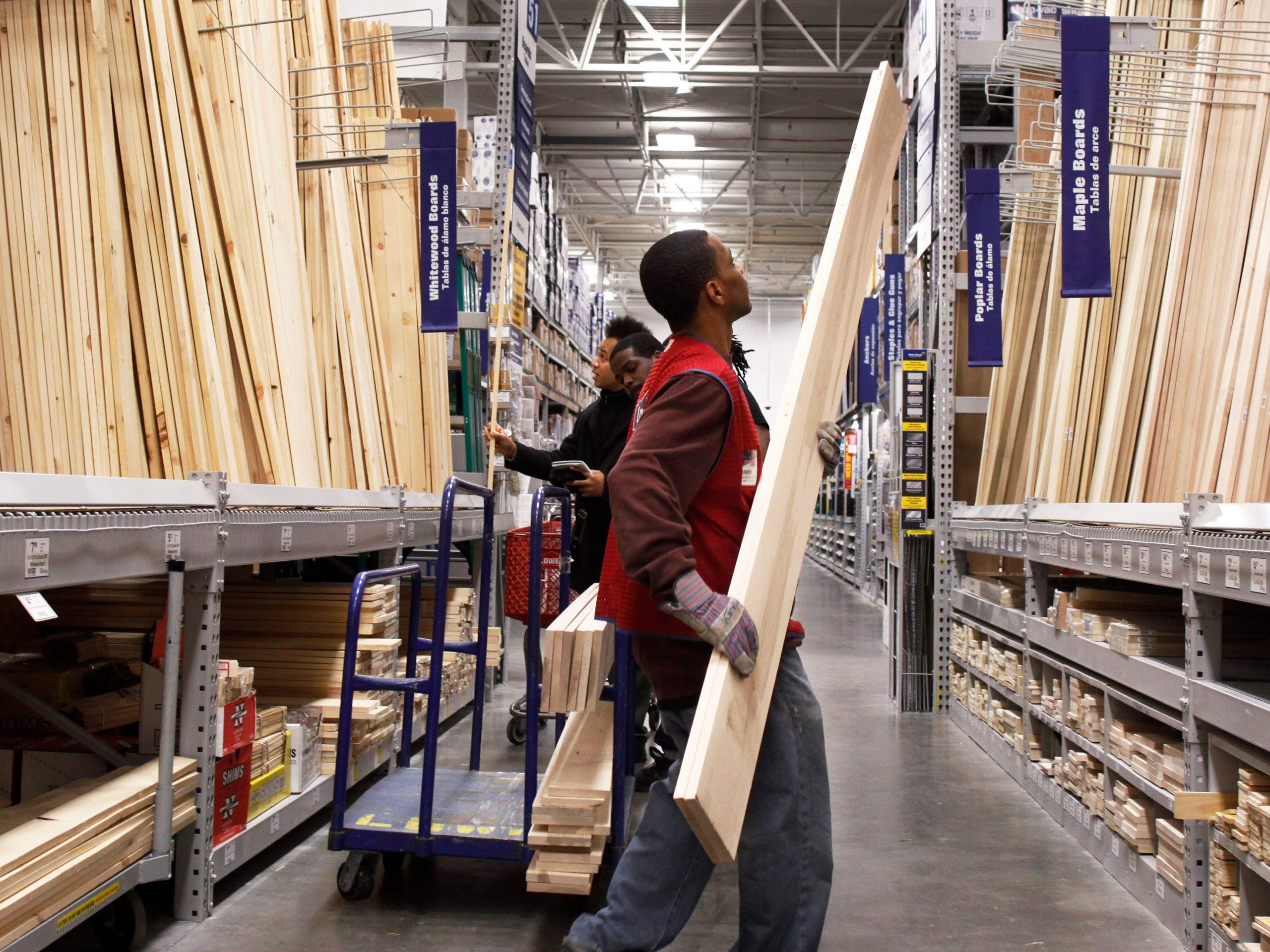
- Home-improvement projects are being set back by months due to shipping delays and shortages.
- The home-buying and remodeling boom has companies struggling to keep up with demand.
- Skyrocketing lumber prices are also making projects increasingly expensive.
- See more stories on Insider's business page.
The pandemic caused a surge in home-improvement projects at the worst possible time and many companies are still struggling to keep up with backlogs of projects.
Over 44% of home improvement plans in the US have been delayed due to supply shortages and skyrocketing material costs, according to data from market research firm, Cardify.ai, a company that uses transactional data to generate reports on consumer spending.
Steve Cunningham the CEO of Cunningham Contracting and the chair of the National Association of Home Builders' (NAHB) Remodelers Council said his projects are being delayed by months due to the limited availability of materials, as well as laborers. Data from the NAHB Remodeling Market Index indicates that, on average, home improvement projects are facing 1-2 months of delays.

Chris Delmas/AFP/Getty Images
"A lot of remodelers have more business in front of them than they can service," NAHB Chief Economist Robert Dietz told Insider.
John Bitely, the president of Sable Homes, a home-building company based out of Rockford, Michigan, told Insider that in 30 years of business he's never seen such demand.
"We usually build houses to sell them," Bitely said. "We have virtually none of those available right now because all of our labor and production is fully absorbed with creating pre-sold homes. Every home we're making is already sold because people are chomping at the bit for these new homes and we can't build our way out of it."
Not only are home-improvement projects lagging due to spikes in demand, new homes have also become an incredibly hot market. Last month, mortgage giant Freddie Mac reported that there is a shortage of nearly 4 million homes in the US.
Government agencies are backed up
Bitely said Sable Homes faces delays from the very beginning of a project, as government agencies have been slow to give out the necessary home-building permits, adding at least two weeks to the waiting process.
He attributes the delay to the sheer amount of permits government agencies are rushing to approve as home-building demand continues to increase.
Josh Wiener, the founder of home-improvement firm Silver Lining Inc, told Insider it's been difficult to get projects approved due to the COVID-19 regulations in New York City.
Once a project starts it can get stuck midway through
Supply shortages have been unpredictable in recent months. Cunningham told Insider he's had projects where a kitchen remodel has been held up by the availability of the dishwasher model or refrigerator. Contractors currently expect to wait an extra 3-4 weeks for appliances to be delivered due to shipping delays and the global computer chip shortage, Cunningham said.
There have been times when Sable Homes has been forced to pivot from one project to another, as contractors wait on vinyl siding or plumbing pipes. Bitely said the company tries to compensate by ordering products well ahead of schedule, but they never quite know what products will be in short supply.
"The biggest problem is the shortage is random so it's very difficult to fix or nail down," Bitely told Insider. "Because it's impacting nearly every facet of the supply chain, it will be difficult to make it go away."

While kitchen appliances have been heavily impacted by the global semiconductor chip shortage, other products like paint and vinyl siding are also in short supply due to the Texas freeze. Though, Dietz says the skyrocketing lumber prices are one of the biggest hurdles home-building and improvement companies are struggling to overcome.
"Lumber is a big component of any home project," Dietz said. "It's adding about $36,000 to new single family homes and it's driving remodeling prices higher."
Home-improvement projects are sure to be more expensive
It's difficult to predict how much a project will cost.
Cunningham told Insider that his company has an escalation clause in their contract that the material costs may be subject to change. Bitely said he sees prices fluctuate every few weeks.
"As a company, there's nothing we can do but pass those prices through to the customer," Bitely said. "We set up the expectation early on that prices are changing and the project may be subject to delays and for the most part customers are not deterred."

Reuters/Shannon Stapleton
Other companies have been forced to eat the rising material costs without an escalation clause in their contracts. Wiener said his company has been forced to pay for 100% of costs that are outside of the initial budget. He said Silver Lining has been lucky in that as a bigger firm they have been able to overcome the cost hurdles, while smaller firms might be forced out of business.
Despite delays and rising costs, demand shows no signs of dampening
"Right now, most clients are still going through with buying because they're desperate for house. They have no other choice," Bitely said.
Home-building and improvement delays and price spikes are not expected to abate anytime soon. On Thursday, Kyle Little, chief operating officer of Sherwood Lumber, told CNBC he expects elevated lumber prices to continue into the "foreseeable future."
"It's really imperative that policymakers improve these supply chains," Dietz told Insider. "Lumber affordability is key to housing affordability."
Dit artikel is oorspronkelijk verschenen op z24.nl

